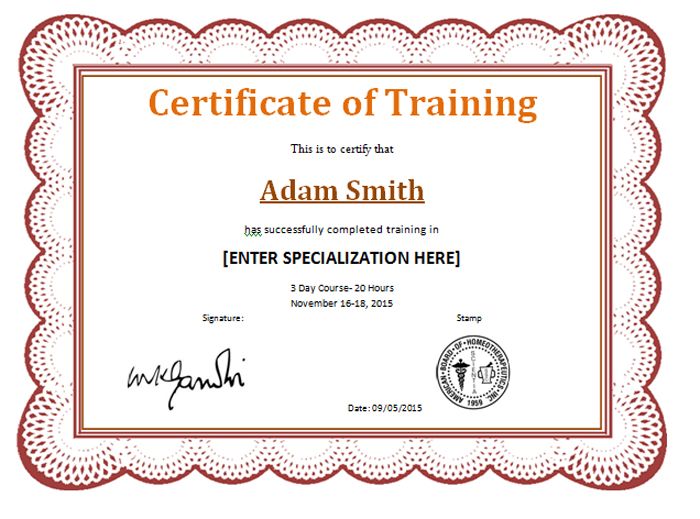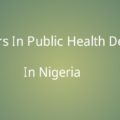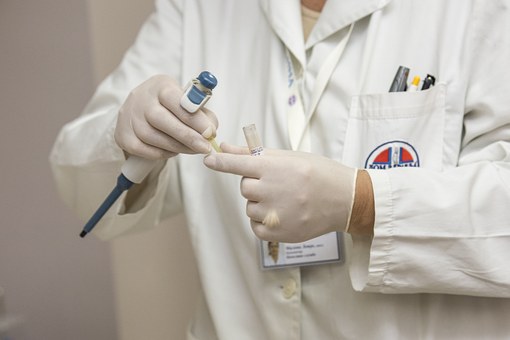Public health is a field that involves multi-disciplinary studies, and your public health certification program can work in tandem with the education you are receiving for your bachelor’s, master’s, or Ph.D. Some programs offer 15 course hours to provide you with a comprehensive overview of public health and will cover working with various organizations, including governmental and nonprofit, and how to promote health and hygiene among populations to prevent disease.
Certificates are often of most interest to people who want to acquire a specialized set of skills and may or may not choose to continue in a degree in Public Health. They generally consist of 3 to 6 required courses and focus on the basics or fundamentals of the field. Many of the certificates in the top 40 focus on required courses in some combination of the core competencies. These core concepts include epidemiology, health education, biostatistics, social and environmental health, and healthcare management.
Clearly, without obtaining your entire Master’s in Public Health, a certificate program can only cover the basics, like an overview of the deeper concepts. Some of the certificate programs we featured below require introductory courses in each of these five, or pick two focus areas and require intro and secondary courses in that concept. What many professionals choose to do with an online public health certificate is to supplement a non MPH degree, like a nursing degree, a medical degree, a social work degree, or even a finance or accounting degree, if they are working in a healthcare setting. Truthfully, the concepts that public health workers learn about could benefit anyone who works with the public. Students pursuing a graduate certificate in public health online should choose a program with both regional and national accreditation. Verify a program’s accreditation status using the lists of accredited schools and programs provided by National accreditation bodies such as NUC, CHEA, and CEPH. Accredited Online Bachelors, Masters, and Ph.D. Programs In Nigeria
Public health certificate programs often have more accessible admission requirements than master of public health programs. Certificate programs often waive minimum GPA requirements; applicants need only a bachelor’s degree and letters of recommendation. Many schools offer a Postgraduate certificate in public health program as a pathway to a master’s program. Typically, students must earn a minimum GPA in the certificate program to gain admission to the master’s program.
The most competitive candidates for admission to certificate programs have professional experience in the public health field, a high undergraduate GPA, and undergraduate coursework in public health and biology. Applicants can improve their chances of admission by meeting the school’s priority deadline. See: Best Schools for Masters In Public Health (MPH) in Canada
The following list includes descriptions of typical application requirements.
Transcripts: A transcript is a list of a student’s completed undergraduate courses and corresponding grades. Higher grades increase the student’s chances of admission to certificate programs.
Resume/work experience: A resume is a catalog of an individual’s professional experience. The strongest applicants to graduate certificate programs have previous work or volunteer experience in the public health field.
Test scores: Some public health certificate programs require applicants to submit GRE scores. However, certificate programs are less likely to require standardized test scores than master’s programs.
Statement of purpose/essay: A statement of purpose is a written essay describing the student’s reasons for pursuing a graduate certificate in public health. The strongest applicants submit statements of purpose that align with the program’s stated goals.
Letters of recommendation: Applicants must typically submit letters of recommendation from professors, supervisors, or other authority figures who have worked closely with the applicant in an academic or professional setting.
Earning an Online Certificate in Public Health
Many students choose to earn their public health certificate online. Distance education programs are ideal for self-starters with strong time-management skills. Most online programs consist of asynchronous coursework; students complete weekly assignments and attend no scheduled classes. The asynchronous format allows students to work full time or fulfill personal obligations while earning their public health certification. See 12 Top Online MPH With No GRE Requirements
Through online programs, students can attend the nation’s top public health programs without leaving their communities. Though public health certificate programs rarely include practicum or internship requirements, students who attend online master’s programs often complete in-person requirements locally. Most programs include no on-campus components, and students typically complete public health certificate programs online within one year.
Many online public health programs follow a cohort model; students complete a prescribed sequence of coursework with a small group of peers. This model provides accountability and networking opportunities. Cohort models integrate peer interaction — one of the greatest benefits of on-campus programs — into the online learning environment. SEE: You Can Enroll For This Highly Rated Online MPH In Nigeria
Educational Paths for Certificate in Public Health Graduates In Nigeria
In Nigeria, there are several paths to earning a certification in public health. After completing public health certificate programs, or ordinary national diploma programs in public health, students can transfer to associate, bachelor’s, or master’s programs. A bachelor’s degree in public health often leads to jobs with high levels of employee satisfaction. Below are common undergraduate degrees for students with a certificate in public health.
Bachelor of Science in public health: Students who pursue a BSc in public health generally hold a certificate with a specialization in a clinical field, such as epidemiology or biostatistics. Graduates typically work in clinical settings, such as hospitals.
Bachelor of arts in public health: The BA in public health is ideal for students who plan to enter non-clinical fields, such as education, policy, or healthcare management. Graduates often work in nonprofit organizations and government agencies.
Associate degree in public health: An associate in public health generally requires 60 credits of general education requirements and introductory public health coursework. These include public health diplomas from schools of health technology. Graduates often continue their public health education by pursuing bachelor’s degrees.
CONCENTRATIONS
Types of Public Health Certificates
Public health certificates are available in a variety of specialties, which may be clinical or non-clinical. Professionals with a public health certificate in epidemiology or biostatistics often work in hospitals, clinics, or laboratories, while those with a certificate in healthcare management or health policy may work within government or nonprofit offices. Students should consider the certificate options that best fit their professional goals.
Occupational health
Occupational health deals with all aspects of health and safety in the workplace and has a strong focus on primary prevention of hazards. The health of the workers has several determinants, including risk factors at the workplace leading to cancers, accidents, musculoskeletal diseases, respiratory diseases, hearing loss, circulatory diseases, stress-related disorders, and communicable diseases, and others.
Employment and working conditions in the formal or informal economy embrace other important determinants, including, working hours, salary, workplace policies concerning maternity leave, health promotion, and protection provisions, etc.
Public Health Nutrition
Public Health Nutrition focuses on the promotion of good health through nutrition and the primary prevention of nutrition-related illness in the population. The journal provides an international peer-reviewed forum for the publication and dissemination of research aimed at understanding the causes of, and approaches, and solutions to nutrition-related public health achievements, situations, and problems around the world. See: Complete Guide for a Masters in Public Health in Nigeria
Epidemiology and biostatistics
Epidemiology and biostatistics Students explore the causes and prevention of human disease and learn how to conduct fieldwork and research. Graduates often pursue positions as epidemiologists in clinical settings such as laboratories and hospitals.
Healthcare management
Healthcare management students learn how to improve contemporary healthcare delivery systems. Healthcare management certificate programs prepare students for leadership roles in the industry. Prospective students should look for programs with accreditation from the Commission on Accreditation of Healthcare Management Education.
Environmental Health
Environmental Health is the field of science that studies how the environment influences human health and disease. “Environment,” in this context, means things in the natural environment like air, water, and soil, and also all the physical, chemical, biological, and social features of our surroundings. Environmental Health Students learn about toxicology, risk assessment, and health management in the context of environmental health. Graduates often pursue positions with organizations such as the Environmental Protection Agency and the Federal Emergency Management Agency.






